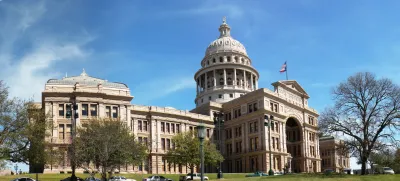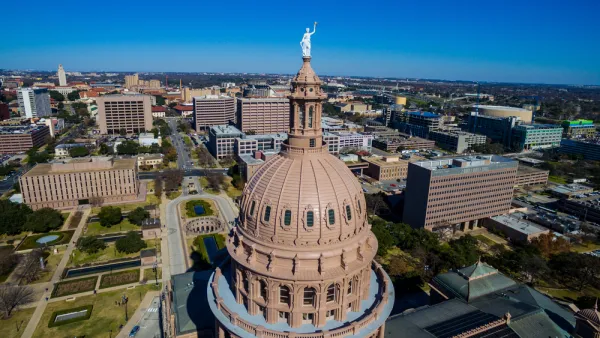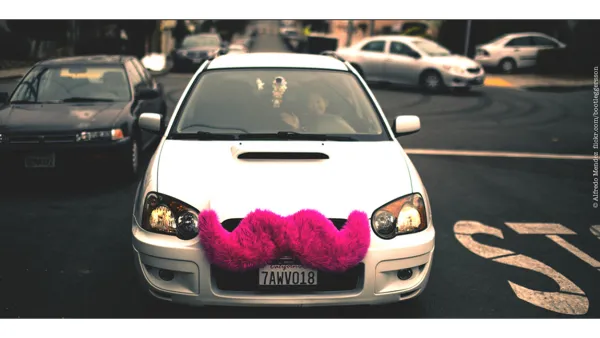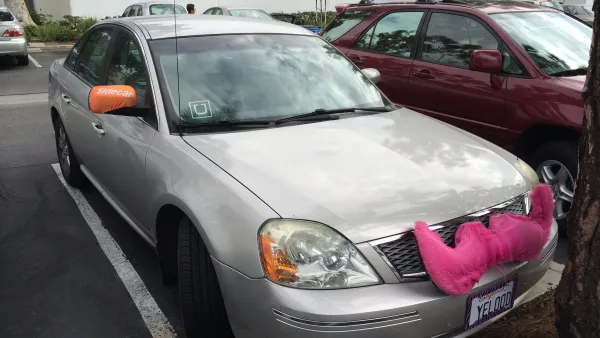In the spirit of civic self-congratulation, Austin resident Richard Parker writes about how the transportation network company giants canceled service after losing a referendum vote. He ascribes this victory to the city's enduring contrarian streak.

Earlier this month in Austin, Texas, voters struck down a measure that would exempt Uber and other transportation network companies from driver fingerprinting. Richard Parker writes that it became "a referendum on who is in the driver's seat (pun intended) when it comes to the public weal: new-economy powerhouses out to 'disrupt' society for fun and profit, or the people they're seeking to disrupt. In Austin, it wasn't even close."
When they lost the vote, Uber and Lyft quit the Texas capital two years after they arrived.
According to Parker, transportation network companies weren't always the public enemy they apparently became. In 2014, with the city full of young creatives, festival-goers, and other Uber-friendly types, transportation network companies seemed like "the perfect fit."
"But what [the companies] failed to appreciate was that Austin's long and storied counterculture wasn't just a marketing pose." Parker writes that many in Austin have resisted the city's transformation into a techie paradise just as hard as they fought Texas' prevailing conservative politics. Some even blamed the companies for worse traffic when drivers developed a habit of stopping mid-street to pick up customers.
He also clarifies that the decision to cut off service wasn't Austin's. "To be clear: The city never told Uber and Lyft to leave. But it did insist that they play by our rules and have drivers be fingerprinted, just like cabbies — particularly after the police investigated at least seven alleged sexual assaults by ride-share drivers in 2015."
FULL STORY: How Austin Beat Uber

Analysis: Cybertruck Fatality Rate Far Exceeds That of Ford Pinto
The Tesla Cybertruck was recalled seven times last year.

National Parks Layoffs Will Cause Communities to Lose Billions
Thousands of essential park workers were laid off this week, just before the busy spring break season.

Retro-silient?: America’s First “Eco-burb,” The Woodlands Turns 50
A master-planned community north of Houston offers lessons on green infrastructure and resilient design, but falls short of its founder’s lofty affordability and walkability goals.

Test News Post 1
This is a summary

Analysis: Cybertruck Fatality Rate Far Exceeds That of Ford Pinto
The Tesla Cybertruck was recalled seven times last year.

Test News Headline 46
Test for the image on the front page.
Urban Design for Planners 1: Software Tools
This six-course series explores essential urban design concepts using open source software and equips planners with the tools they need to participate fully in the urban design process.
Planning for Universal Design
Learn the tools for implementing Universal Design in planning regulations.
EMC Planning Group, Inc.
Planetizen
Planetizen
Mpact (formerly Rail~Volution)
Great Falls Development Authority, Inc.
HUDs Office of Policy Development and Research
NYU Wagner Graduate School of Public Service




























